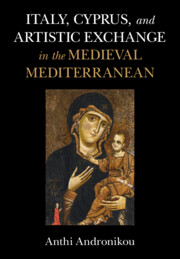The Dominican friar Johannes Nider (1380–1438), known today as the father of witchcraft literature, played an important role at the Council of Basel (1431–49) on the Council's delegation to the Hussites and its deputation on religious reform. Despite Nider's reputation as a reformer of religious communities, his approach to communal liturgy has not attracted close attention. This article focuses on his broad theoretical treatise, De reformatione religiosorum or De reformatione status cenobitici (On the Reform of the Religious State), in which Nider articulates a philosophical concept of reform as the restoration of beauty, manifested in well-ordered and balanced proportion. In the interest of universal applicability, the treatise remains abstract. However, biographical descriptions of Nider from his contemporaries and the visitation letters he wrote to women's convents show Nider as an engaged liturgical leader, a talented singer with a robust voice, and a zealous expert in the legal particulars of Dominican liturgical regulations. In light of these contexts, De reformatione's sweeping laments over liturgical neglect and academic metaphors of well-disposed proportion are not just rule-hammering and scholastic fancy but rather universalized expressions of Nider's lived commitment to Dominican musical and ritual practice.


